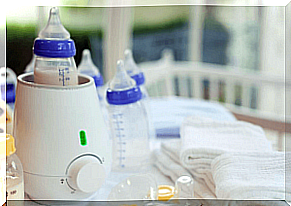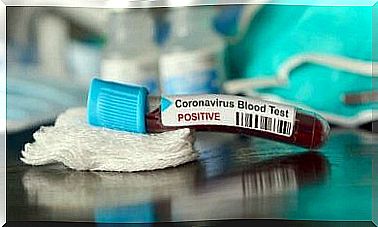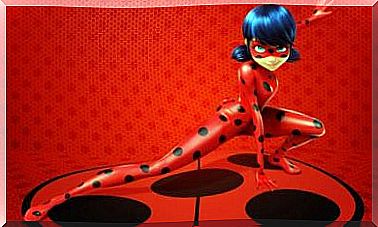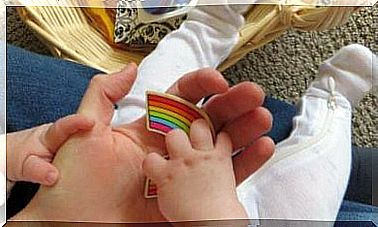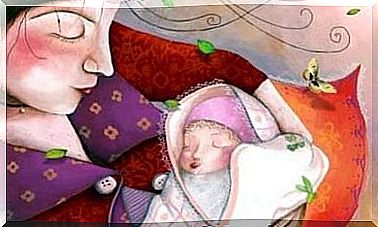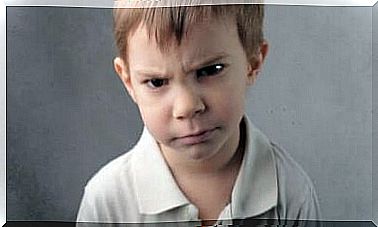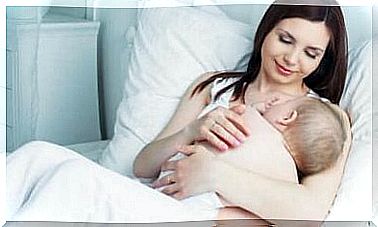My Baby Drools A Lot, What Should I Do?
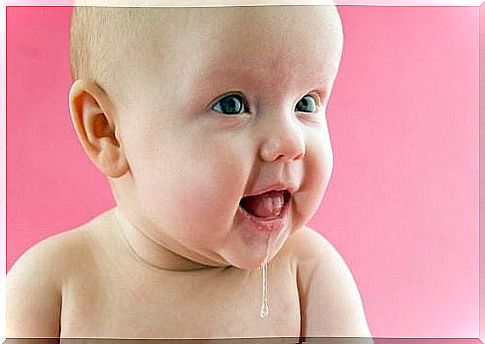
My baby drools a lot, what should I do? This is a very common question among mothers in their first pregnancy, who are frightened to see that the baby produces more saliva than they think it should normally produce.
Excess saliva or drooling are normal in newborns, and this is due to the fact that they cannot yet swallow. From two months of age, the baby begins to produce excess saliva; similarly, this happens when the teething process begins.
A newborn baby doesn’t produce much saliva, but as the months go by, a phase begins in which it sucks and bites everything. It is at this time that saliva production increases. The newborn produces it without realizing it ; so, naturally, he drools a lot because of this, which doesn’t happen with milk.
It all depends on the swallowing system. When feeding, infants exert an effort with the muscles of the mouth to suck out all the milk. Conversely, saliva produces itself and stays there until it overflows.
For this case, the use of a bib is very effective. In fact, the bib does not allow the baby’s body to get wet and keeps it warm. In addition, we must be careful and keep the baby’s mouth dry, to prevent it from becoming irritated.
My baby is drooling a lot, when should I worry?
When a baby is cold, it is normal for him to drool excessively. If we notice that he does this without being sick, it is time to go to the pediatrician.
When the drooling goes on for a long time, it can mean that the child has some nervous system problem that does not allow swallowing to take place properly.
Even if the little one eats badly, and drools a lot while doing so, it can mean that he has pain to swallow. The cause is usually some viral infection that causes pain or sores inside the mouth.
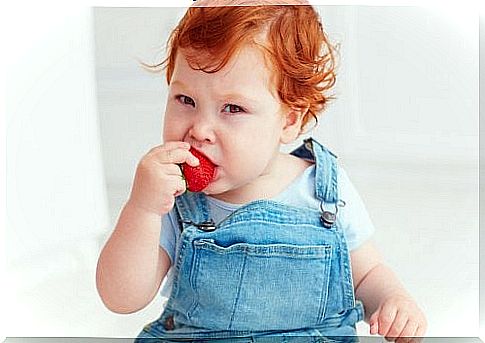
If your child drools a lot, he runs the risk that his saliva often goes sideways or that he is constantly nauseous, as well as having difficulty breathing. In any of these cases, the best thing to do is to stay calm and take the baby to the pediatrician to rule out any pathology.
Ultimately, it is also important to recognize that the baby’s swallow reflex is immature and tends to take some time to develop.
Is it just because of the teeth that my baby drool a lot?
Clearly, one of the reasons a newborn drools a lot is because of tooth eruption. Even if they take a long time to appear, starting from the second month of life the dental nuclei begin to move under the gums.
Saliva contains enzymes that help fight possible infections. It is therefore that its production will increase after the first tooth is erupted. At this stage, the child will likely ask for items to bite. These small tools provide relief to the baby’s gums, but cause more saliva to be produced.
On the other hand, the first thing babies discover are their hands, and soon after they’ll start putting them in their mouths. In this way, they explore new sensations. By playing with his hands in his mouth, the baby stimulates salivation and starts drooling.
This activity is very useful when the baby starts complementary feeding. For example, grasping food and bringing it to his mouth will gradually lead him to move on his own towards a complementary diet with solid foods.
When they start biting their fingers and playing with their tongue, babies stimulate salivation, which is needed to soften and swallow food.
Thus, the child tends to bite in the area where their teeth spit; this area is therefore often swollen and red. Salivation is quite intense and necessary at this time, as it keeps the area hydrated and avoids infections.
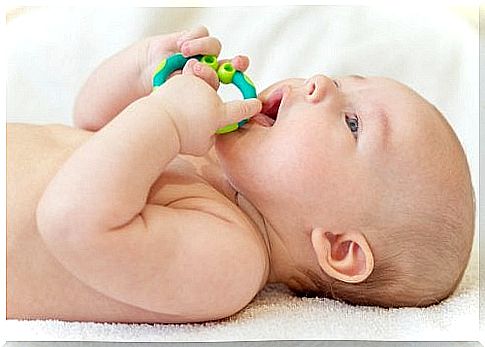
Saliva and nutrition
The new flavors and new sensations that result from the introduction of solid foods stimulate the taste buds and lead to the production of more saliva than usual. The role of saliva is to act as a lubricant and help food get to the stomach.
You must be very careful if your child’s salivation goes beyond what is considered normal; in general, the average age at which the baby stops drooling is around 18 months, although it is very variable. Everything will always depend on its level of development, acceptance of the ingestion of solid foods and the process of teething.
It is essential not to be alarmed, as well as having an absorbent bib and a pacifier on hand is of great use to help the newborn during this period. Discover and take advantage of each stage of your child’s growth calmly remember at all times that both positive and negative phases are unique and unrepeatable phases.
